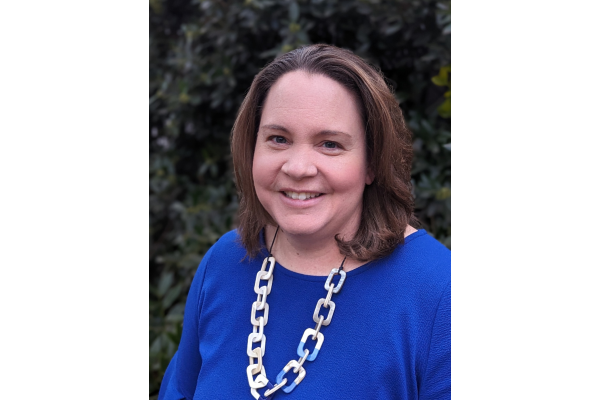
Suzanne Hallquist, MSPH, MHS, PA-C joined the faculty of the Duke Physician Assistant Program on March 1st, 2023. She earned her Master of Science in Public Health in Epidemiology from Emory University in 2001 and her Master of Health Sciences in Physician Assistant Studies from Duke University in 2019. She also completed a post-graduate fellowship in primary care with Duke Primary Care in 2020.
Why did you choose to join the faculty in the Department of Family Medicine & Community Health?
I joined the Department of Family Medicine & Community Health, first and foremost, because I love teaching and mentoring. I started my career at the U.S. Centers for Disease Control & Prevention, developing and delivering continuing education classes on statistics and public health policy. I loved the challenge of making a dry topic (statistics!) come to life and witnessing the “a-ha” moments when students understood a tough concept. More recently, I have been serving as a clinical preceptor for PA and NP students at Duke Primary Care. It brings me great joy to help learners connect their textbook learning with real life cases.
What attracted me specifically to the Duke PA program is the commitment to ongoing reflection and improvement. The PA leadership, faculty, and staff are always asking – how can we do this better? Although the Duke PA program is the oldest in the country, it is by no means stagnant. I am thrilled to be a part of the ongoing evolution of the Duke PA program and PA education more broadly.
Where were you working previous to the Duke PA Program? What was your role there?
For the past few years, I have been working full-time at Duke Primary Care South Durham, wearing several hats. I serve as a primary care provider to a diverse and medically-complex patient population. I also coordinate PA/NP clinical rotations and participate in an interdepartmental Primary Care Research Consortium.
Before becoming a Physician Assistant, I worked as a health statistician at the CDC. When I wasn’t on tour with the continuing education group, I analyzed health data for the Healthy People 2010 program and National Healthcare Quality & Disparities Reports. I still love studying patterns and subtleties in data. I look forward to being involved with the Evidence-Based Practice courses within the Duke PA program.
What is your approach to mentorship/teaching?
As a mentor, I take a coaching approach. I find that students are often acutely aware of their shortcomings, but sometimes less able to see or acknowledge their strengths. I try to help students discern their unique strengths and chart a path within the PA profession.